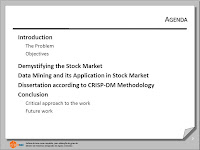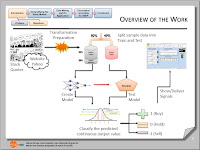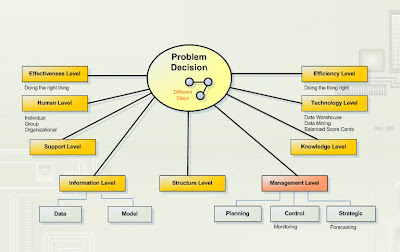Dear Friends,
Once again, I’m writing a post with a long delay… Sorry… Today, I will follow the sugestion of several blog visitors, which is to describe and write more about what I’m doing in my master BI degree and my point of view of BI.
After nine months of master classes I’m able to describe my definition and my opinion of BI. My purposes with this post, and based not only in the classes but also in the several books I read and work experience as BI Developer, is to launch the discussion about what is BI and mainly how is BI structered.
Business words
The image shows the four pilars but also in which context the several business words related could apply in BI. Here in Portugal, and I thinks is the same in rest of the world, IT Consulting Companies usually create some confusion into the market, invented new business words, and curiously, almost times only these business words are new!
For me, BI is based in four main pilars:
Strategy
This pilar is where the top management defines the strategy and the path that must be followed to achieve the organization goals! The typical metodology to structure this strategy is the Balanced Scorecard (BSC) created by Kaplan and Norton. They recommend that managers gather information from four important perspectives:
Customer's perspective. How do customers see us?
Internal business perspective. What must we excel at?
Innovation and learning perspective. Can we continue to improve and create value for our services?
Financial perspective. How do we look to shareholders?
Processes
This pilar is not yet very evolved, and only few years ago, organizations start looking to processes in other perspective. Following Paul Harmon, in the article he wrote in http://www.bptrends.com/ about maturity level of organization processes, he realized that almost organizations are in a low level (2,5 in a range of 1 to 5) and still worst here in Portugal... And in my opinion, processes is the better way that an organization has to improve performance, reduce costs, and unfortunately in some organizations a better way to implement downsizing, because automating and improve a process may cause that a person could be moved to another unit or to be fired reducing costs for organization. It’s cruel, but almost organizations in the world focus on reducing costs finding a solution to fire people… but this is another discussion point! Business Process Management (BPM) is based in other past investigations like Business Process Reeigineering (BPR) and Total Quality Management (TQM). BPM or processes, could be monitorized by a Business Activity Monitoring (BAM) that is nothing more that a solution with KPI to monitor the performance of each process, and could be implemented a Business Process Management System (BPMS) that is responsible to follow the life cycle of each process (business object)
People
This pilar has the organizational hierarchy which shows who commands who, but not what each people do in organization. A good BI implementation must focus on people, not only to better manage the change of a new system, but also to gathering implicit knowledge that exists in each people of the organization transforming it in explicit knowledge.
Technology
This pilar as the other pilars it’s very important and requires a big understand not about the tools but about the concepts. There is a lot of people is this subject that are tools oriented in spite of be concept oriented. What I’m trying to describe, and mainly after my master degree, is that the tool is not the most important thing in this pilar. What’s important is the concepts and the understanding of what you can do with the tools. For example, to create a BSC you don’t need to be worried about the tool you do that, but in the concepts required to create a sucessful BSC. You can use a tool from SAS or you can simple create it for example in Excel… maybe you don’t know, but excel is the most powerfull and more used tool in the perspective of end user… and in my opinion, with new version 2007, Excel will be even better!!! Tecnology and mainly data mining algorithms could answer important questions to the organization that could change the strategy of the Organization.
These pilares are all important and dependent of each other, but in my opinion, people is the higher important pilar, and not only the people that implement the new system, but also the people in organization that accept this system, because there is a tremendous resistance by people to a change and there is a lot of implicit knowledge in organization that must be converted in explicit knowledge.
There is a lot of things to write and explain in each pilar, but I will try to do that if you think that itcould be usefull for you!!!
Cheers!!!

















































